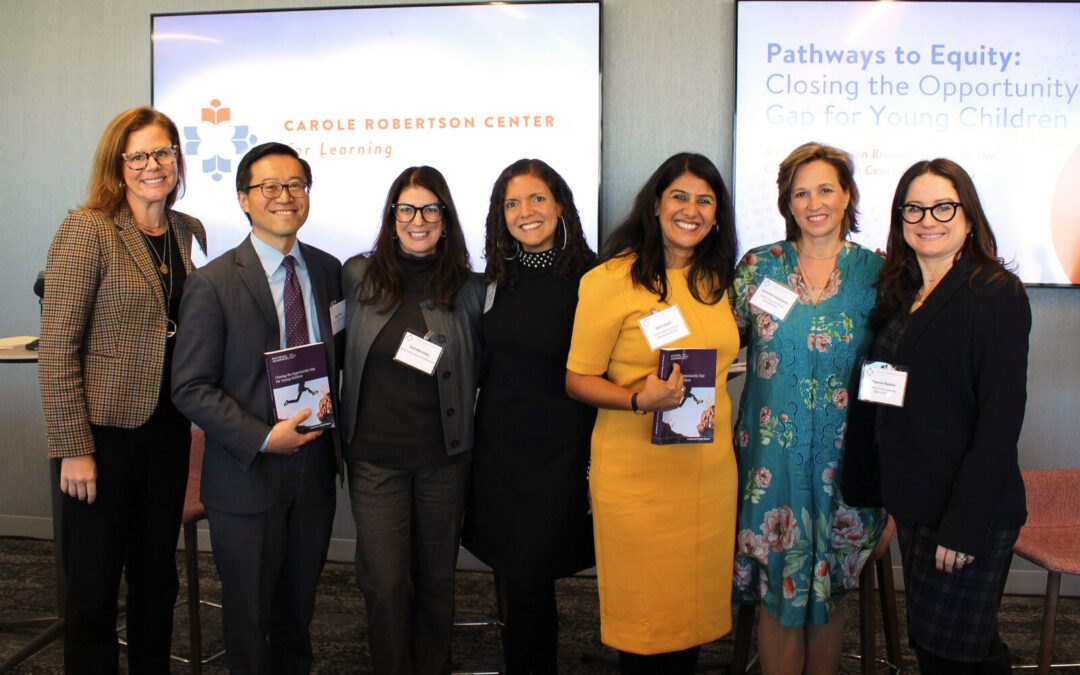Mary Beck, Deputy Chief of Teaching and Learning at Chicago Public Schools, Albert Wat, Senior Policy Director at Alliance for Early Success, Deborah Moroney, Vice President at American Institutes for Research, Mariana Souto-Manning, President at Erikson Institute, Bela Moté, President and CEO at Carole Robertson Center for Learning, Cornelia Grumman, Board Member of the Carole Robertson Center for Learning, and Teresa Ramos, First Assistant Deputy Governor for Education at Office of the Governor-Illinois.
In May, the National Academies of Sciences, Engineering, and Medicine released a groundbreaking report titled Closing the Opportunity Gap for Young Children. The paper outlines recommendations for education policy, practice, and research to address inequities affecting children from birth to eight.
Bela Moté, President and CEO of the Carole Robertson Center for Learning, served as a co-author of the report—the sole practitioner voice amongst a long list of academics and policy experts. Throughout the report’s drafting and release, Moté wondered: How can we bring this research off the page and into our communities?
Five months later, the answer to that question came to life. On November 9, the Carole Robertson Center hosted Pathways to Equity: Closing the Opportunity Gap for Young Children, a panel discussion bringing leaders in early childhood and youth development together to imagine—and rally around—a more just, equitable education landscape.
With Carole Robertson Center Board Member and Pulitzer Prize-winning journalist Cornelia Grumman facilitating dialogue, our diverse group of panelists spoke about teacher pay and retention, the interdependent relationship between quality and equity in the classroom, effective applications for early childhood data, and more. And underlying the morning’s robust conversations was the shared belief that high-quality early education as a public good is necessary to advance racial and economic justice.
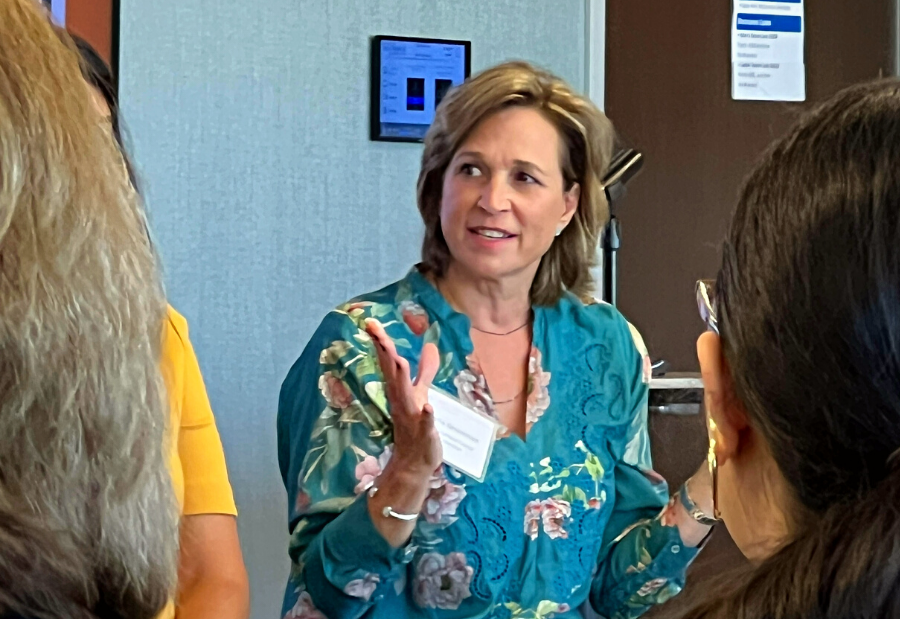
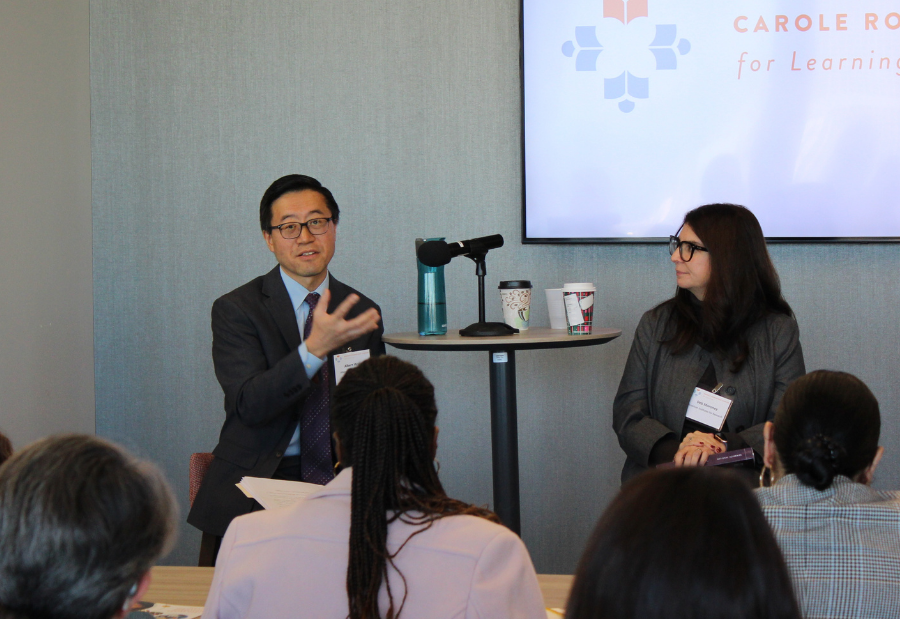
Albert Wat, Senior Policy Director at the Alliance for Early Success, spoke about how, in order to dismantle systems of bias in early education settings, we must incorporate an equity lens into measures of program quality. “Quality without equity is not quality. And equity without quality is not equity,” Wat said.
Moté underscored the importance of strong data infrastructure to promoting equity in early childhood education. “To imagine a different world, you need qualitative and quantitative data to build that world,” she said.
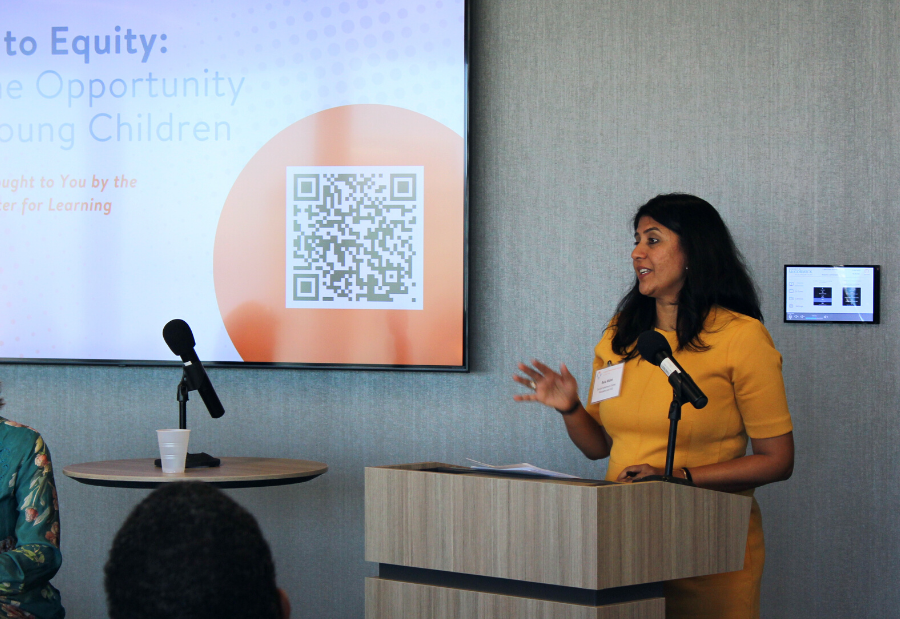
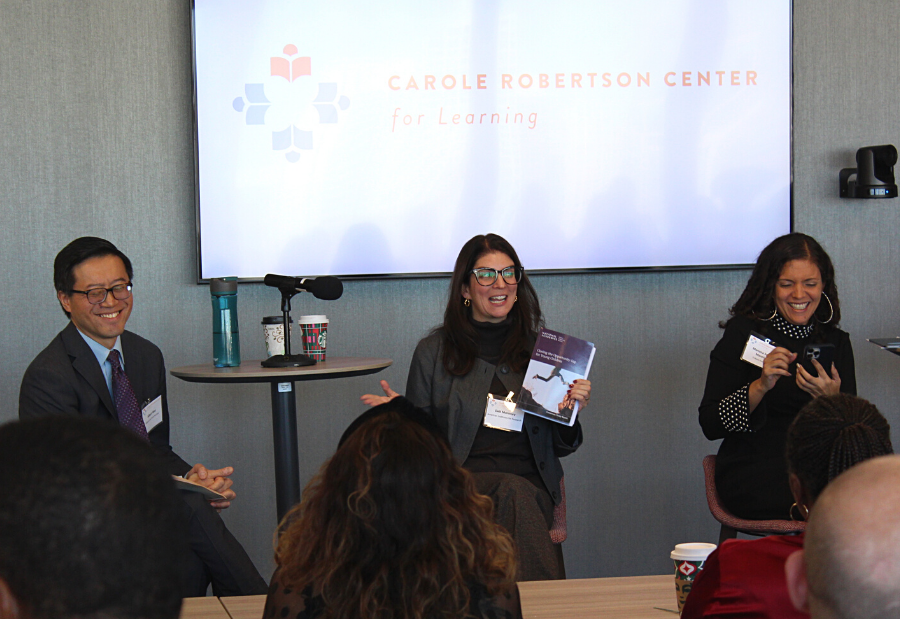
Deb Moroney, Vice President at American Institutes for Research, provided further perspective on data, focusing on its usability: “In our data system’s current state, the burden on providers to collect data is too high, and the usability of that data is too low.”
All panelists agreed that a stronger early education system begins with teachers receiving fair pay and ample professional development opportunities.
“I don’t think there’s a teacher crisis—there’s a salary crisis,” Erikson Institute President Mariana Souto-Manning said, strongly asserting that pay equity is essential to teacher retention.
Moté also reflected on her experiences leading the Center through a period of immense growth. She emphasized leadership development as an investment families can feel: “We underrepresent the role program site leadership plays. They can make or break a family’s experience,” she said.
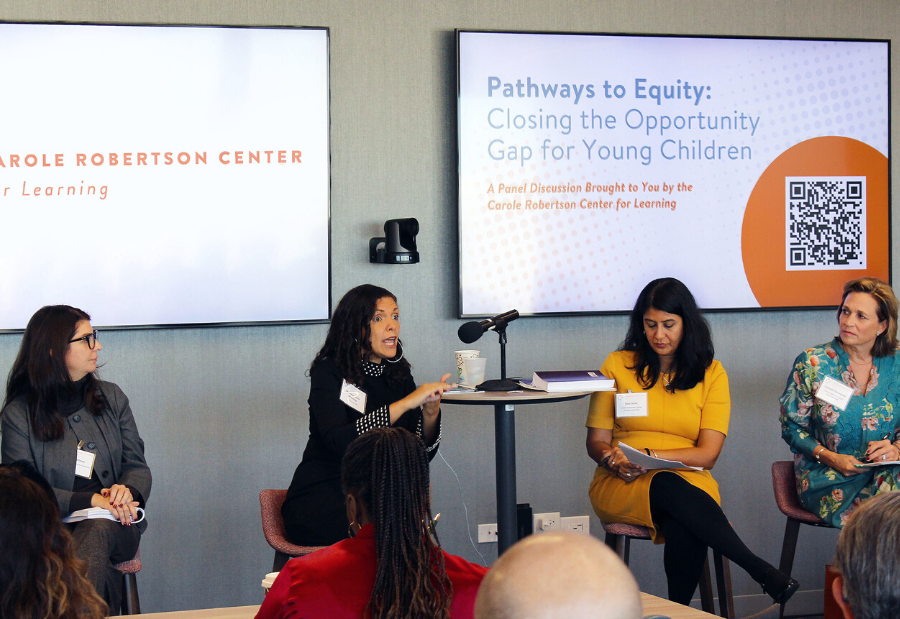
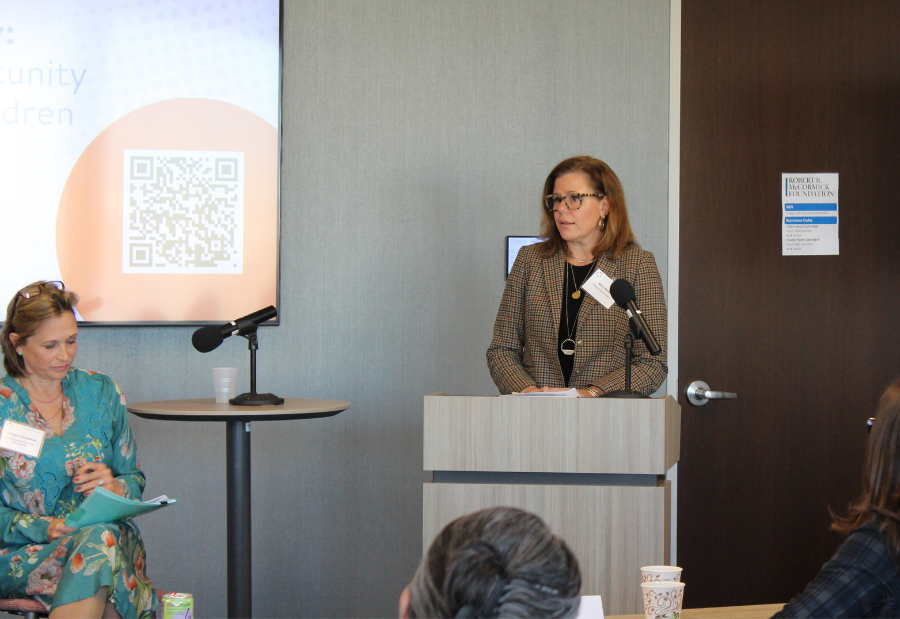
Respondent Mary Beck, Deputy Chief of Teaching and Learning for Chicago Public Schools, brought a K-12 perspective to the discourse. “Why don’t we have more elementary school principals coming from an early education background?” she asked.
Respondent Teresa Ramos, First Assistant Deputy Governor for Education in Illinois, called on attendees to take insights from the panel and apply them toward systemic change. “We have a moment in Illinois to do systems redesign,” Ramos said. “We need to ask, ‘What does a five-star experience for families of color look like in early childhood?’” She cited Governor Pritzker’s recent announcement of an early childhood-focused state agency – with Moté serving as head of a transition advisory committee — as a reason to put hope at the forefront.
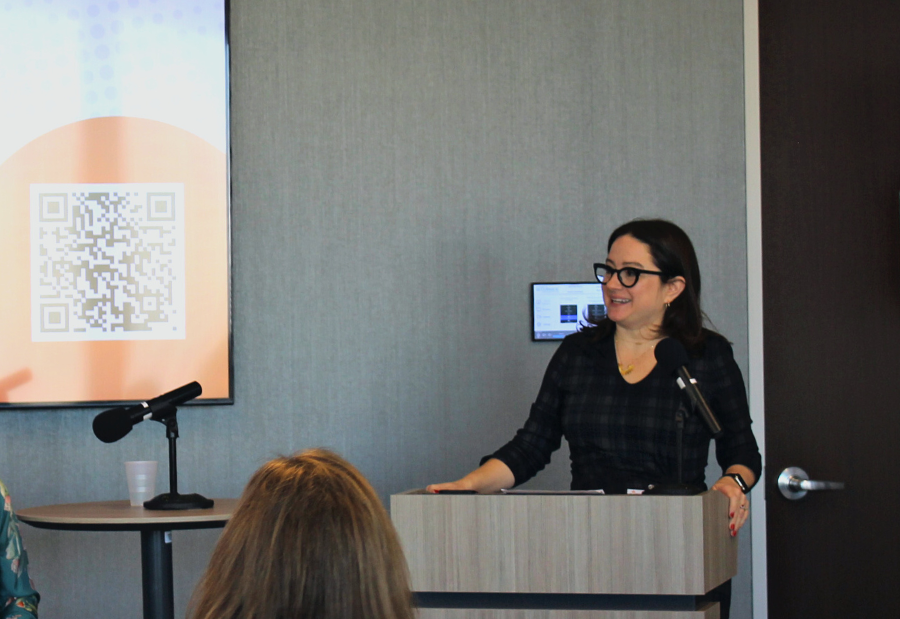
While addressing systems-level barriers to early education access and quality will inevitably take time, resources, and continued paradigm shifts within the sector, bringing leaders together to ask critical questions and think through bold solutions is a vital first step in bringing Closing the Opportunity Gap for Young Children’s recommendations to life.
Pathways to Equity: Closing the Opportunity Gap for Young Children was made possible thanks to support from the Robert R. McCormick Foundation and W. Clement & Jessie V. Stone Foundation.
